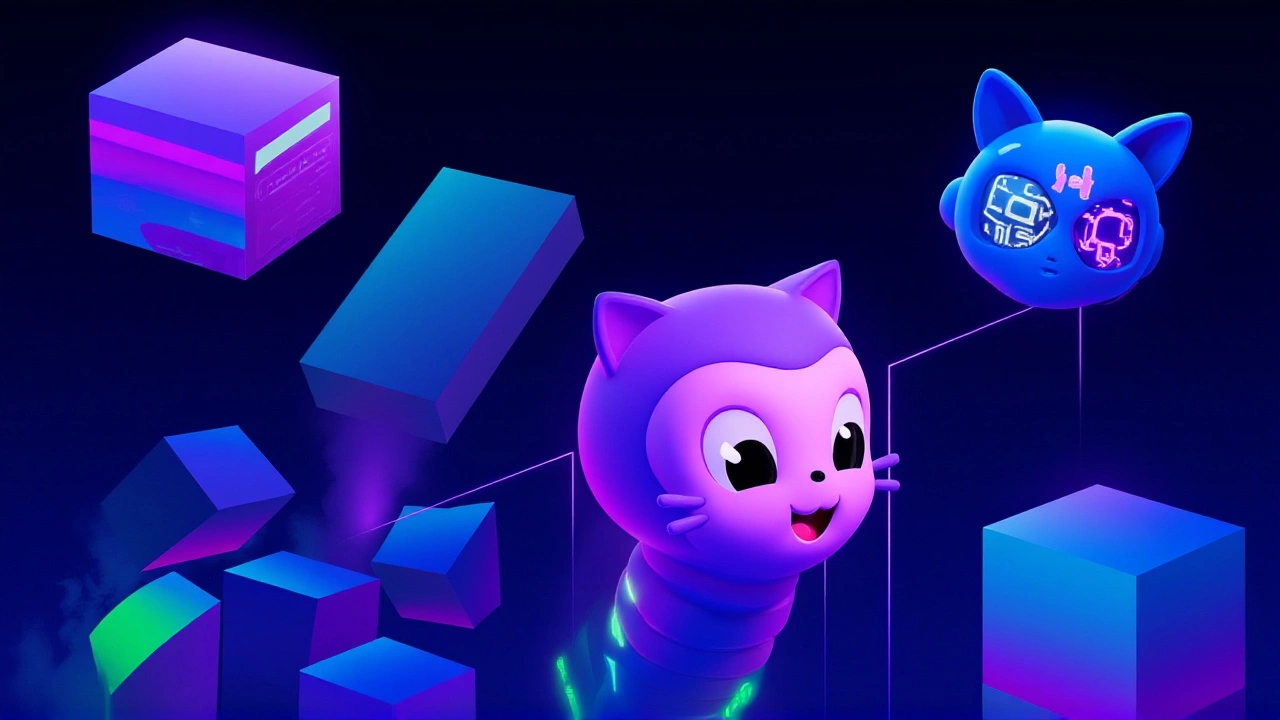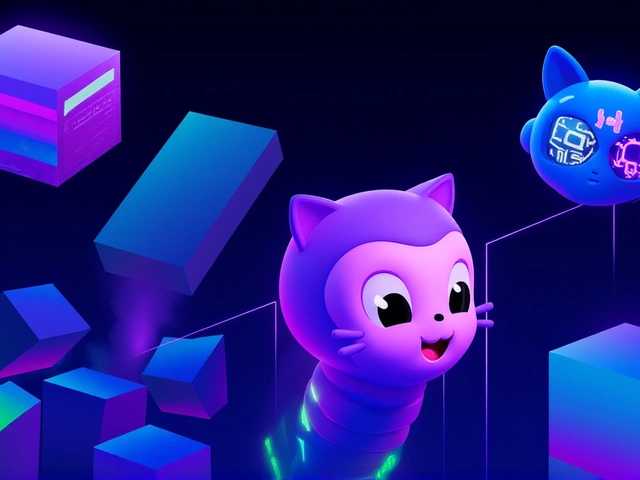On May 19, 2025, in Seattle, Washington, GitHub stunned the developer world by unveiling an enterprise-ready asynchronous coding agent that now builds itself. The new AI-powered agent, embedded directly into the GitHub platform and accessible from Visual Studio Code, doesn’t just suggest code—it writes it, opens pull requests, and iterates on feedback without human oversight. This isn’t a feature update. It’s a paradigm shift. For the first time, the world’s largest code hosting platform is using its own AI to evolve its infrastructure. The twist? It’s not just helping developers. It’s becoming one.
From Assistant to Collaborator
Just three years ago, GitHub launched GitHub Copilot as a smart autocomplete tool. Now, it’s a full-stack teammate. The new agent operates on GitHub Actions, leveraging the world’s largest CI/CD ecosystem—over 25,000 pre-built actions in the GitHub Marketplace. It spins up secure, customizable development environments on demand, allowing engineers to assign issues directly to Copilot and walk away. The agent works in the background, refining code, responding to review comments, and even rolling back flawed changes—all without a single manual command.
"With its autonomous coding agent, GitHub is looking to shift Copilot from an in-editor assistant to a genuine collaborator in the development process," said Kate Holterhoff, senior analyst at RedMonk in Portland, Maine. "This evolution aims to enable teams to delegate implementation tasks and thereby achieve a more efficient allocation of developer resources across the software lifecycle."
The Tech Behind the Shift
GitHub didn’t just add a button. It rebuilt the engine. The AI Toolkit for Visual Studio Code now lets developers build, test, and deploy full AI agents using nothing but prompts—powered by the Microsoft Agent Framework. To streamline performance, engineers slashed the default toolset from 40 to 13 core functions. The result? A 2–5 percentage point boost in success rates on benchmarks like SWE-Lancer and SWEbench-Verified, with GPT-5 and Sonnet 4.5 models. Latency dropped by 400 milliseconds on average, according to internal A/B tests.
"It’s not about doing more—it’s about doing it faster and smarter," said Heena Purohit, Global Director of Data and AI at Microsoft for Startups. "I work with startups all over the world building cutting-edge data and AI solutions, and I see every day how GitHub Copilot makes it possible for startups to run leaner, make the most of their dev resources and ship faster. It makes a huge difference in terms of their quality of output and time to market. GitHub Copilot is now the standard that's powering the next generation of AI solutions."
Numbers That Speak Louder Than Words
The adoption stats are staggering. By early 2025, GitHub Copilot had hit 15 million users—a fourfold jump from the prior year, according to Second Talent. Nearly 80% of new developers on GitHub use Copilot within their first week. Enterprise users report an 84% increase in successful builds. Time to first pull request? Down from 9.6 days to just 2.4 days—a 71% reduction, per Opsera research. And here’s the kicker: developers keep 88% of Copilot’s suggestions unchanged. That’s not just helpful. That’s trusted.
Even outside tech giants, the impact is real. Grupo Boticário, Brazil’s largest cosmetics company headquartered in São Paulo, saw developer productivity surge 94% after deploying Copilot. That’s the kind of proof GitHub needed before applying the same system to its own platform.

Expanding the Ecosystem
GitHub isn’t keeping this to itself. The company announced it’s open-sourcing Copilot Chat in Visual Studio Code and bringing agent mode to JetBrains, Eclipse, and Xcode. That means developers using IntelliJ, Android Studio, or Apple’s native tools will soon get the same autonomous coding power. The goal? Make AI collaboration universal—not just for GitHub’s ecosystem, but for the entire software development landscape.
What This Means for the Future of Coding
As of 2025, GitHub hosts over 180 million developers and 630 million projects. Last year alone, 121 million new projects were added. Four-point-three million of those are AI-related—nearly double since 2023. The platform is no longer just a repository. It’s the nervous system of global software development. And now, its own brain is learning to think.
"In 2021, Copilot was mind-blowing," said Stephen O'Grady of RedMonk in November 2025. "By 2025, it’s indispensable. And now? It’s autonomous. We’re not just writing code anymore. We’re managing AI teammates."

What’s Next?
GitHub plans to roll out the autonomous agent to its internal engineering teams over the next quarter. Expect to see real-time improvements to the platform’s UI, security protocols, and performance tools—all driven by Copilot itself. Meanwhile, Microsoft is quietly integrating the agent into Azure DevOps, hinting at enterprise-wide automation across its cloud stack.
One thing’s clear: the days of developers manually reviewing every line of code are ending. The new norm? Delegating routine work to AI, then focusing on architecture, creativity, and strategy. That’s not automation. That’s evolution.
Frequently Asked Questions
How does this affect everyday developers?
For most developers, it means less time writing boilerplate code and more time solving complex problems. With Copilot handling routine tasks like test generation, documentation, and bug fixes, engineers can focus on design and innovation. The 88% code retention rate shows developers trust the output, and the 71% reduction in time to first PR means faster feedback loops and quicker releases.
Can the AI agent make mistakes?
Yes—but it’s learning from every interaction. The agent uses embedding-guided tool routing and adaptive clustering to improve decision-making over time. While early versions had higher error rates, benchmarks show a 2–5% improvement in accuracy since the 40-tool to 13-tool reduction. GitHub’s internal testing also includes human-in-the-loop validation for critical systems, ensuring safety without slowing progress.
Why is GitHub building its own platform with AI?
It’s the ultimate stress test. If Copilot can reliably improve GitHub’s own codebase—handling everything from UI updates to security patches—it proves the system works at scale. This isn’t just marketing. It’s validation. The same AI that helps startups ship faster is now being asked to maintain the platform billions rely on. Success here means the technology is enterprise-ready.
Is this a threat to developer jobs?
Not a replacement—more like a co-pilot. Jobs aren’t disappearing; they’re evolving. Roles focused on manual coding, repetitive testing, and basic debugging are declining. But demand is rising for architects, AI trainers, system designers, and ethics reviewers. Companies like Grupo Boticário report higher retention because engineers feel more engaged, not replaced.
What’s the difference between Copilot Chat and the new agent?
Copilot Chat answers questions and generates snippets on demand. The new agent works autonomously over hours or days—opening PRs, responding to reviews, and iterating based on feedback without prompting. Think of Chat as a colleague you ask for help. The agent is the teammate who shows up, does the work, and updates you when it’s done.
When will this be available to all users?
The autonomous agent is rolling out to enterprise customers in June 2025. Free and student users will get access to the core agent features in late Q3 2025, with full integration into JetBrains, Eclipse, and Xcode expected by early 2026. Open-sourcing Copilot Chat in VS Code means developers can already experiment with agent workflows today.

